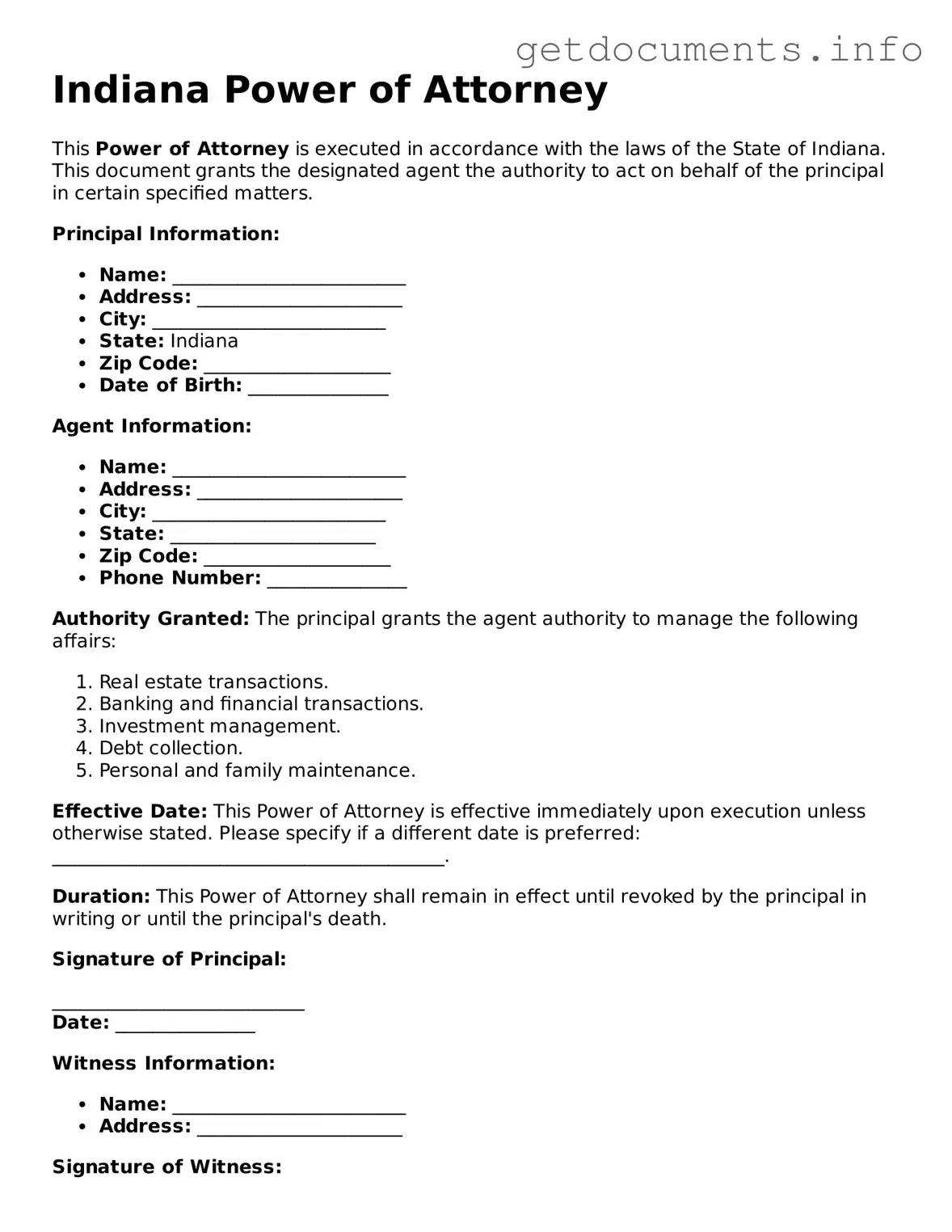Free Power of Attorney Template for Indiana
The Indiana Power of Attorney form is a legal document that allows an individual, known as the principal, to designate another person, referred to as the agent, to make decisions on their behalf. This form can cover a wide range of financial and health-related matters, providing essential support in times of need. Understanding the nuances of this form is crucial for ensuring that your wishes are honored when you may not be able to express them yourself. Ready to take the next step? Fill out the form by clicking the button below.
Access Power of Attorney Editor

Free Power of Attorney Template for Indiana
Access Power of Attorney Editor
Got places to be? Complete the form fast
Fill out Power of Attorney online and avoid printing or scanning.
Access Power of Attorney Editor
or
⇩ PDF File
